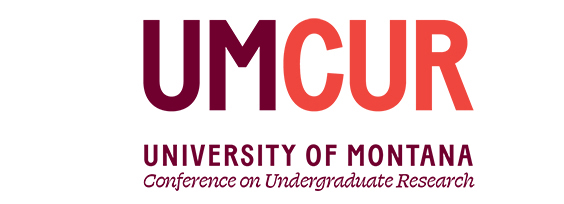Presentation Type
Poster
Faculty Mentor’s Full Name
Catherine Off
Faculty Mentor’s Department
School of Speech, Language, Hearing, and Occupational Sciences
Abstract / Artist's Statement
Background: Aphasia is a disorder of language and communication resulting from brain injury. Secondary implications for persons with aphasia (PWA) include depression and social isolation. To help mitigate the linguistic and psychosocial effects of aphasia, PWA may participate in Aphasia Community Groups (ACGs). These are defined as regularly meeting groups composed of PWA who interact and participate in communication activities.
Purpose: The purpose of this prospective study is to determine what PWA desire to gain from Aphasia Community Groups.
Methods: As the initial step of a larger five-year study, clinicians and researchers at the University of Montana (UMT) will develop a patient-reported measure for PWA to be given monthly at the beginning of ACG sessions. This measure will require PWA to rank categories of desired ACG outcomes in order of individual importance. These four categories previously established in the aphasia literature base include improved: (1) well-being, (2) communication, (3) community engagement/participation, and (4) friendship/belonging/support. During the spring 2024 semester, the developed measure will be administered to members of the UMT ACG (n = ~ 8 PWA). Results will include descriptive statistics including the mean rank of each category from participating PWA.
Significance: The need for this study is highlighted by the lack of research on what PWA are motivated to gain from these sessions. Several studies have shown how ACGs are beneficial, but none have directly explored individual perspectives of PWA to identify their most motivating outcomes. Additionally, this study will provide a foundation by which to track changes in desired outcomes of PWA throughout the duration of services and draw conclusions from this data. These findings will help clinicians and researchers improve effective and personalized care to PWA and monitor their progress throughout their time in an ACG.
Category
Social Sciences
What do People with Aphasia Want Out of an Aphasia Community Group?
UC South Ballroom
Background: Aphasia is a disorder of language and communication resulting from brain injury. Secondary implications for persons with aphasia (PWA) include depression and social isolation. To help mitigate the linguistic and psychosocial effects of aphasia, PWA may participate in Aphasia Community Groups (ACGs). These are defined as regularly meeting groups composed of PWA who interact and participate in communication activities.
Purpose: The purpose of this prospective study is to determine what PWA desire to gain from Aphasia Community Groups.
Methods: As the initial step of a larger five-year study, clinicians and researchers at the University of Montana (UMT) will develop a patient-reported measure for PWA to be given monthly at the beginning of ACG sessions. This measure will require PWA to rank categories of desired ACG outcomes in order of individual importance. These four categories previously established in the aphasia literature base include improved: (1) well-being, (2) communication, (3) community engagement/participation, and (4) friendship/belonging/support. During the spring 2024 semester, the developed measure will be administered to members of the UMT ACG (n = ~ 8 PWA). Results will include descriptive statistics including the mean rank of each category from participating PWA.
Significance: The need for this study is highlighted by the lack of research on what PWA are motivated to gain from these sessions. Several studies have shown how ACGs are beneficial, but none have directly explored individual perspectives of PWA to identify their most motivating outcomes. Additionally, this study will provide a foundation by which to track changes in desired outcomes of PWA throughout the duration of services and draw conclusions from this data. These findings will help clinicians and researchers improve effective and personalized care to PWA and monitor their progress throughout their time in an ACG.
